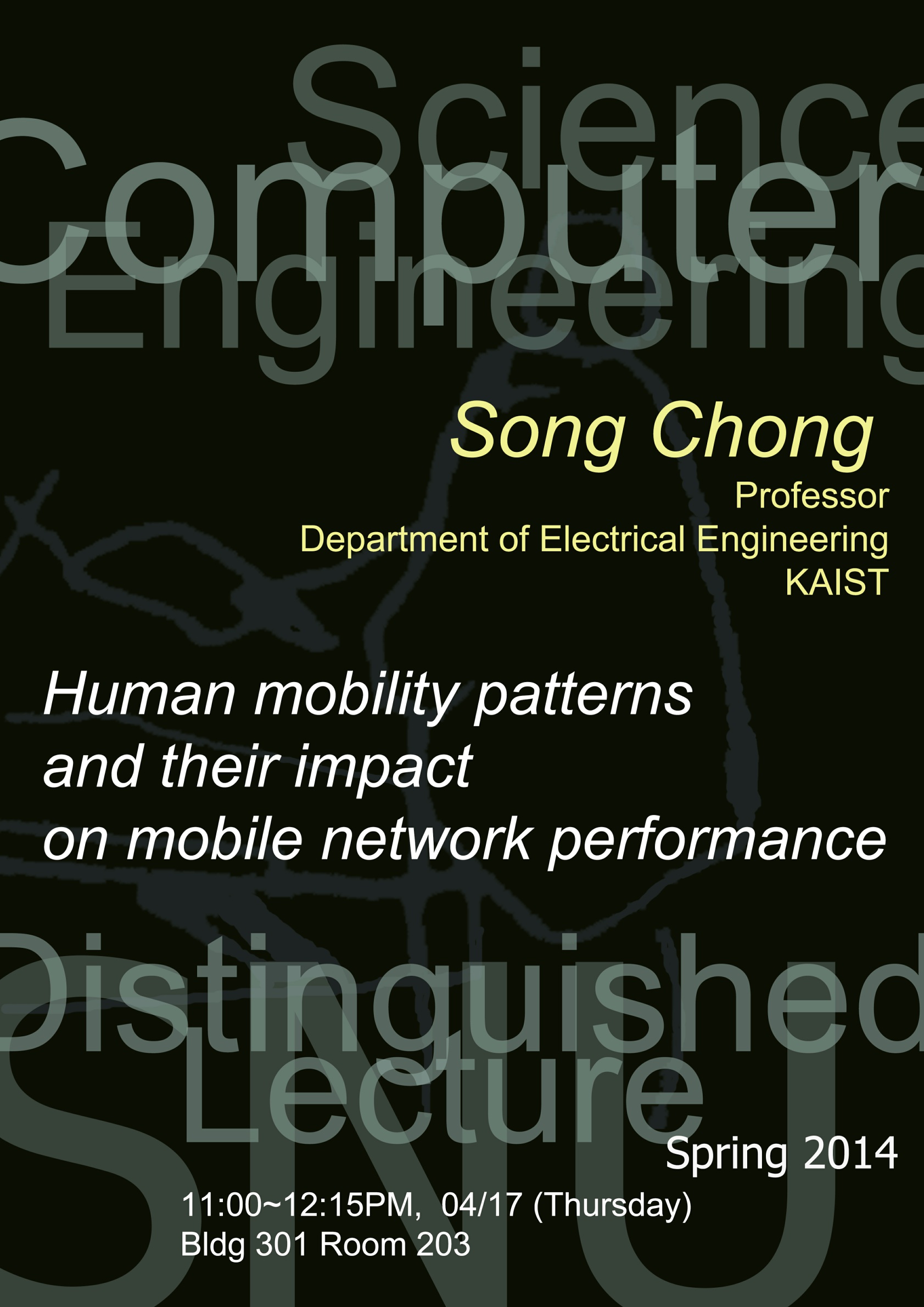[Distinguished Lecture Series] Human mobility patterns and their impact on mobile network performance
Song Chong
직함: professor
Department of Electrical Engineering, KAIST


A purpose of studying human mobility patterns is their use in simulating and predicting the performance of mobile networks of wireless devices carried by people. In particular, a special attention has been given to a new mobile networking paradigm called epidemic forwarding where wireless devices have capability to store packets to carry them by their mobility towards destination until they meet relays or the destination opportunistically. While the concept of epidemic forwarding is attractive, a fundamental question is whether or not actual human mobility patterns in our daily life would provide sufficient number of contact opportunities to keep end-to-end packet delays with an acceptable range. In this talk, we address what have been found recently on human mobility patterns and what the root causes of these findings. One remarkable finding is that actual human mobility patterns and the corresponding inter-contact time distributions are very different from those simulated by widely-used mobility models, exhibiting power-law characteristics. We take a closer look at how these power-law characteristics impact on mobile network performance and suggest some new engineering guidelines.
Song Chong is a Professor in the Department of Electrical Engineering at Korea Advanced Institute of Science and Technology (KAIST), Daejeon, Korea, and was the Head of Communication and Computing Division of the department in 2009-2010. He is the founding Director of KAIST-LGE 5G Mobile Communications & Networking Research Center funded by LG Electronics. Prior to joining KAIST in March 2000, he was with the Performance Analysis Department, AT&T Bell Laboratories, New Jersey, as a Member of Technical Staff. His current research interests include wireless networks, mobile networks and systems, network data analytics, distributed algorithms, and cross-layer control and optimization. He is an Associate Editor of IEEE/ACM Transactions on Networking and IEEE Transactions on Mobile Computing, and has served on the Technical Program Committee of a number of leading international conferences including IEEE INFOCOM, ACM MobiCom, ACM CoNEXT, ACM MobiHoc, and IEEE ICNP. He serves on the Steering Committee of IEEE WiOpt and was the General Chair of IEEE WiOpt '09. He received the IEEE William R. Bennett Prize in 2013, given to the best original paper published in IEEE/ACM Transactions on Networking in 2011-2013, and the IEEE SECON Best Paper Award in 2013. He received the B.S. and M.S. degrees from Seoul National University and the Ph.D. degree from the University of Texas at Austin, all in electrical engineering.